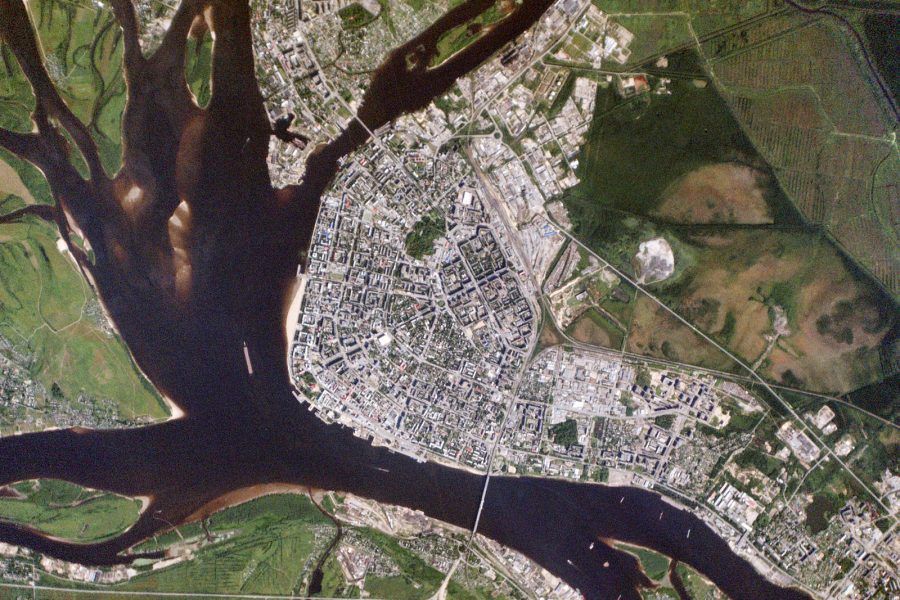NATO and satellite imagery firm Planet Labs have signed a contract for a “virtual” constellation of surveillance, intelligence, and reconnaissance space assets—the latest sign of NATO’s growing reliance on commercial space capabilities.
The contract is the first under the Alliance Persistent Surveillance from Space (APSS) program, launched by NATO early in 2023, in which 17 member states including the U.S. agreed to pool and distribute intelligence and surveillance data culled from both from national and commercial satellites. Described by NATO officials as as the largest space project in its history, APSS will be worth a combined $1 billion over the next five years.
But APSS includes no NATO-owned or -operated space assets. Rather, it is a gathering operation, combining data from existing and future space sensors to create a common operating picture allies can use for “persistent surveillance … on any location at any given time,” according to a NATO fact sheet. The so-called virtual constellation has been dubbed “Aquila.”
The Planet Labs deal is the first publicly known contract to emerge from the program.
“Planet’s tasking capabilities will empower NATO decision-makers by providing imagery for use with detailed tracking and analysis of foreign military capabilities and activities, monitoring of military infrastructure, detecting movements, assessing threats effectively, filling missing intelligence gaps and helping provide an unclassified common operating picture between allies,” the company said in a release.
Planet has around 200 active satellites, among the largest constellations in orbit.
“Planet’s sub-daily tasking brings new capabilities which enable monitoring of large areas of NATO interest, bolstering our technological advantage, and fulfilling our mission of preserving peace and security for nearly one billion people,” said Laryssa Patten, head of space technology adoption and resilience at NATO’s Communications and Information Agency, in a statement.
NATO published an “overarching” space policy in January 2022, expressing its intent not to become an autonomous space actor, but that it would seek instead to integrate space into its core functions and facilitate interoperability among allies. Russia’s subsequent invasion of Ukraine and China’s growing ambitions in the arctic and Pacific have since led NATO to warn of risks in space—and to consider how member states can bolster their capabilities in space.
Planet Labs, meanwhile, is slowly growing its defense portfolio. The firm has already signed contracts with the U.S. Navy and the National Reconnaissance Office for imaging data. The U.S. Space Force released its commercial space strategy earlier this year in which it detailed its interest in leveraging commercial capabilities wherever that made sense. Planet Labs hosted a government-focused space event with USSF speakers earlier this summer and inked a deal with the Air Force Research Laboratory in September 2023 to support the MicroSatellite Military Utility Program.
Tactical ISR and environmental monitoring, missions where Planet Lab’s satellites could prove useful, are among the missions the Space Force strategy cites where “hybrid architectures” combining military, allied, and commercial satellites could prove useful.
Editor’s Note: This story was updated Aug. 28 to note that Planet Labs has signed a contract with the Air Force Research Laboratory to support the Space Force.
